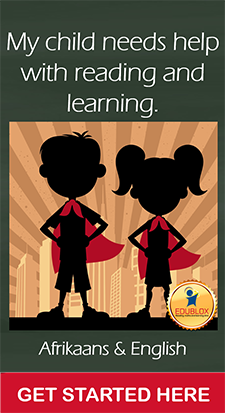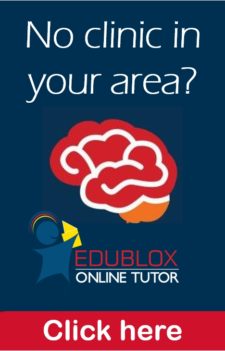
In modern Western society mastery of basic academic skills — reading, writing and arithmetic — is a necessary prerequisite for success in both school and employment settings and society at large. However, due to learning difficulties, the futures of many children are put in jeopardy.
School can become an unhappy place for children with learning difficulties. They are often misunderstood, and may be mistakenly seen as lazy or poorly motivated. It is often said that ‘they could do better if they tried harder’. Many do not graduate high school due to the failure of the school system to accommodate their learning difficulty. Many adults with learning difficulties are underemployed, often stuck in dead-end jobs that do not tap into their true vocational potential. Many others are not finding employment at all.
Since learning difficulties bring such devastation in the lives of so many children, no stone may be left unturned to eradicate this problem. As Richardson states so succinctly, “Literacy gives us the keys to knowledge and wisdom — the keys to the Kingdom. Isn’t it time now for us all to put our heads together, to work together to see to it that those keys are given to every child?”
Find the cause to find a “cure”
Successful intervention is dependent on finding the cause or causes of a problem. Most problems can only be solved if one knows their causes. A disease such as pellagra, also called the disease of the four D’s — dermatitis, diarrhoea, dementia and death — took the lives of thousands in the Southern states of America during the early part of the twentieth century. Today, pellagra is virtually unknown because we know that it is caused by a vitamin B3 deficiency. A viable point of departure would thus be to ask the question, “What causes learning difficulties?”
To fully understand the cause of learning difficulties it is important to take note of the fact that learning is a stratified process. This is a self-evident fact, yet its significance in the situation of the child with a learning difficulty has apparently never been fully comprehended. Throughout the world in all educational systems it is commonly accepted that a child must start at the lower levels of education and then gradually progress to the higher levels. If human learning had not been a stratified process, if it had taken place on a single level, this would have been unnecessary. It would then not have been important to start a child in Grade 1. It would have been possible for the child to enter school at any level and to complete the school years in any order.
A simpler example to illustrate the stratified nature of learning is the fact that one has to learn to count before it becomes possible to learn to add and subtract. Suppose one tried to teach a child, who had not learnt to count yet, to add and subtract. This would be quite impossible and no amount of effort would ev
Note that a foundational skill is not the same as a process, strategy or technique. The difference between these can be explained by using the game of soccer as example. In order to be a soccer player, a person first has to master the foundational skills — passing, control, shooting, dribbling, goal keeping and heading. Only after that can he be taught strategies or techniques.
What passing, heading and dribbling are to soccer, concentration, perception, memory and logical thinking are to learning. They are the foundational skills of learning.
Concentration
Attention or concentration (the words attention and concentration are used synonymously) is the ability to focus the attention on one single thought or subject, excluding everything else from the field of awareness. It is one of the most important abilities one should possess, as nothing great can be achieved without it.
There are three types of attention: When a child is easily distracted by a pencil falling off their desk or sounds outside the classroom window, they lack focused attention. Sustained attention is required to focus for long periods of time. Then there is divided attention, which is a higher-level skill where you have to perform two or more tasks at the same time. If the task is to write a story, a learner must be able to think about their characters and plot, as well as spelling and punctuation rules that apply.
Concentration rests on two legs. First, it is an act of will and cannot take place automatically. Second, it is also a cognitive skill, and therefore has to be taught, after which one’s proficiency can be constantly improved by regular and sustained practice.
Perception
Before one can learn anything, perception must take place, i.e. one has to become aware of it through one of the senses. Usually one has to hear or see it. Subsequently one has to interpret whatever one has seen or heard, and this can only be done on the basis of past experience of the same, similar or related phenomena. Perceptual ability, therefore, heavily depends upon the amount of perceptual practice and experience that the subject has already enjoyed. This implies that perception is a cognitive skill that can be improved tremendously through judicious practice and experience.
Perceptual skill is extremely important in order to become a good reader. As far as reading is concerned, perception is a foundational skill, just as counting is for the ability to calculate. A child who cannot learn to read, a so-called dyslexic, is frequently simply a child in whom one or more perceptual skills have not been adequately developed in order to make it possible for this child to acquire the skill of reading.
Memory
A variety of memory problems – a poor receptive memory, sequential memory, working memory, short-term memory, or long-term-memory – are evidenced in children with learning difficulties.
Researchers from Durham University, who surveyed over three thousand children, found that ten percent of schoolchildren across all age ranges suffer from poor working memory seriously affecting their learning.
Working memory is the ability to hold information in your head and manipulate it mentally. Lead researcher Dr. Tracy Alloway from Durham University’s School of Education, who, with colleagues, has published widely on the subject, explains: “Working memory is a bit like a mental jotting pad and how good this is in someone will either ease their path to learning or seriously prevent them from learning.”
Children at school need this memory on a daily basis for a variety of tasks.
Until the child with learning difficulties develops adequate memory skills, he will continue to face each learning situation as though it is a new one. No real progress can be attained by either the child or the teacher when the same ground has to be covered over and over because the child has forgotten.
Logical thinking
In his book Brain Building Dr. Karl Albrecht states that logical thinking is not a magical process or a matter of genetic endowment, but a learnt mental process. It is the process in which one uses reasoning consistently to come to a conclusion. Problems or situations that involve logical thinking call for structure, for relationships between facts, and for chains of reasoning that “make sense.”
The basis of all logical thinking is sequential thought, says Dr. Albrecht. This process involves taking the important ideas, facts, and conclusions involved in a problem and arranging them in a chain-like progression that takes on a meaning in and of itself. To think logically is to think in steps.
Logical thinking is an important foundational skill of maths. “Learning mathematics is a highly sequential process,” says Dr. Albrecht. “If you don’t grasp a certain concept, fact, or procedure, you can never hope to grasp others that come later, which depend upon it. For example, to understand fractions you must first understand division. To understand simple equations in algebra requires that you understand fractions. Solving ‘word problems’ depends on knowing how to set up and manipulate equations, and so on.”
It has been proven that specific training in logical thinking processes can make people “smarter.” Logical thinking allows a child to reject quick and easy answers, such as “I don’t know,” or “this is too difficult,” by empowering him to delve deeper into his thinking processes and understand better the methods used to arrive at a solution.
Success

Edublox is a system of cognitive exercises, aimed at developing and automatising the foundational skills of learning, i.e. concentration, perception, memory and logical thinking. Edublox helped Caylin Hibbert to overcome her learning difficulties. Caylin’s mother, Tracy Hibbert, wrote:
“Before I enrolled my daughter Caylin for Edublox classes she was struggling to pass every year. I dreaded parent-teacher evenings and we were always the ones called in to see the teacher or HoD. We had tried everything from extra classes to neurologists to occupational therapists.
“We hit a low point at the end of Grade 3 when we were called in and the school wanted her to repeat the year. I knew how much this would devastate her as she really was trying so hard but just couldn’t come right. We decided against letting her repeat the year but something needed to be done. This is when we started seriously looking into other options and Edublox came up.
“We started Edublox after she failed the first term and saw results after the first couple of tests. She seemed to be more focused and homework time went much more smoothly.
“After the second term I received emails from most of her teacher saying they couldn’t believe the change in Caylin. It was like she was a different child. Her work was up to date and she wasn’t just passing her assignments but actually doing very well. After the second term her term average had increased by 10 percent. We couldn’t believe it!
“The biggest payoff happened at the end of the year at the school prize giving. I had no idea what prize she had won when we were invited. In the end she won the ‘Most improved student’ award (which was the biggest trophy).
“I will highly recommend Edublox to anyone experiencing issues like what we had. It completely changed our lives.”






Leave a Reply